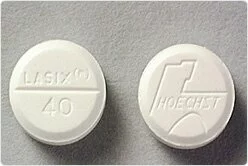If your health care provider is of the opinion that the possibility of you developing a heart disease is more than normal or if the problem of heart diseases runs in the family, then you need to be more than concerned. Heart diseases should not be taken lightly or ignored or postponed for another day lest it should be too late.
What is a Heart Disease?
Blood is the main requirement for all the muscles in the body to function properly. Through blood, the oxygen and nutrients are absorbed by the muscles and are utilized for their healthy functioning. Heart is also a muscle and its requirements are also the same. But, the heart is a much more important organ as it receives and supplies blood to all the parts of the body. This important function puts tremendous amount of pressure on the heart but a healthy heart is designed for such pressure work. If the heart is healthy, the blood flow will be smooth.
Trouble starts when the heart is in trouble due to various reasons. One of them is that the blood vessels which supply blood to the heart start narrowing due to the deposition of cholesterol. Initially, small amounts of cholesterol, called as plaques, start to accumulate on the inside walls of the blood vessels. This situation is the beginning of a serious complication. However, if corrective steps are taken to get rid of the plaque during this stage, then the danger is avoided. On the other hand, if the plaque continues to deposit, a time comes when the passage way of the blood vessels become small and allow less amount of blood to flow to the heart. This less supply of blood to the heart causes heart pain (angina). A step further and the cholesterol deposits may burst, leading to a blood clot and effectively stopping the blood flow at the point of blood clot. The part of the muscle, so deprived of blood, dies. This condition is called a heart attack.
Factors Leading to Heart Disease:
• High blood pressure
• High cholesterol
• Smoking
• Heredity
• Diabetes
• Obesity
• Peripheral artery diseases
• Sedentary lifestyle
• Diet consisting of fatty foods
• Excessive alcohol consumption
How to know that you have a Heart Disease?
• Pain in the chest region
• Difficulty in breathing
• Sweating
• Indigestion
• Pain in upper abdominal region
• Nausea
• Back ache or shoulder ache
How to prevent Heart Diseases?
• Regular blood pressure checks
• Significant reduction in smoking
• Taking corrective measures to reduce cholesterol levels
• Keeping diabetes under control with exercise and proper medication
• Incorporating a healthy exercise routine as a daily necessity to reduce weight
• Modifying eating contents and habits
• Taking meals at the proper time
• Cutting down on fatty and oily food
• Limiting sodium and sugar intake
• Alcohol consumption to be cut down and stopped altogether gradually
• Any other steps to be taken as advised by your health care professional
Tips for a Healthy Heart:
Your cholesterol levels should be regularly monitored by your health care professional. If your LDL cholesterol level is beyond the acceptable limits, then your physician may prescribe medications and recommend special diets. Along with this, an exercise routine may also be recommended to decrease the cholesterol levels and reduce the possibility of heart diseases.
Proper exercise and diet with the help of your health care professional will certainly take care of the extra flab. This routine will help build healthy muscles and put a smile on your face every time you get appreciative glances!



 April 26th, 2011
April 26th, 2011  admin
admin

 Posted in
Posted in  Tags:
Tags: 



I put on weight very quickly, though I exercise moderately. My friend never diets, but does not put on weight. Could you elaborate?
I have cut down on alcohol very significantly but I am not able to stop it altogether. Will this increase my risk of heart disease?